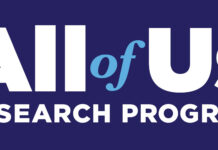WASHINGTON, Nov. 25, 2015 /PRNewswire-HISPANIC PR WIRE/ — The American Academy of Pediatrics (AAP), American Congress of Obstetricians and Gynecologists (ACOG), and the March of Dimes cheered today’s signature into law of the bipartisan Protecting Our Infants Act of 2015 (S.799), which takes much-needed strides to reduce the number of newborns born exposed to drugs, such as opioids, and to improve their care. Since the bill’s introduction, all three organizations have worked together leading advocacy efforts for its swift passage, and view today’s action as a legislative victory for mothers and newborns across the nation.
“Every hour, one infant is diagnosed with neonatal abstinence syndrome. There could not be a more critical time to help families affected by substance use and abuse give their babies the healthiest possible start in life, which is why we celebrate the Protecting Our Infants Act’s advancement into law today. Congress and President Obama recognized the urgent need to address neonatal abstinence syndrome and responded, working across both sides of the aisle to do what is right for our mothers and newborns,” said AAP President Sandra G. Hassink, MD, FAAP.
“No infant should begin life by suffering the pain of drug withdrawal. The March of Dimes commends Congress and President Obama for bringing much-needed attention to the dramatic increase in the number of infants born exposed to opioids and other drugs,” stated March of Dimes President Dr. Jennifer L. Howse. “The Protecting Our Infants Act is a critical first step toward reducing the terrible toll of neonatal abstinence syndrome. We thank the bill sponsors – Senators Mitch McConnell and Bob Casey, and Representatives Katherine Clark and Steve Stivers — for their tremendous efforts on behalf of drug-exposed babies. We look forward to working with authorities at the federal, state and local levels to prevent infant drug exposure and treat those affected.”
“The American Congress of Obstetricians and Gynecologists is extremely gratified that today, President Obama signed the bipartisan Protecting Our Infants Act into law,” said ACOG President, Mark S. DeFrancesco, MD. “This law takes a major step in addressing opioid use during pregnancy while giving women the care that is right for them. As ob-gyns, we recognize the importance of combatting the abuse of prescription opioids across the country while offering non-punitive, family-centered medical treatment. Together, we will address this ongoing public health crisis and ensure a healthy outcome for both mother and baby.”
Reports show the significant rise of opiate use and abuse has led to an alarming increase in the rate of babies born with neonatal abstinence syndrome (NAS). NAS refers to medical complications associated with drug withdrawal in newborns due to exposure to opioids or other drugs in utero. Between 2000 and 2009, the number of mothers found to be using opioids during pregnancy increased from 1.19 to 5.63 per 1,000 U.S. hospital births. Further, in that same time period, the number of babies born with NAS increased from 1.20 to 3.39 per 1000 hospital births per year. Babies born with NAS often need to be hospitalized for weeks, are difficult to console, and can suffer from seizures and other complications. Currently, there are no standardized guidelines for diagnosis and treatment for these newborns, and there is an urgent need for more research to optimize their health.
Specifically, the Protecting Our Infants Act of 2015, introduced by Reps. Katherine Clark (D- Mass.) and Steve Stivers (R-Ohio) and Senate Majority Leader Mitch McConnell (R-Ky.) and Sen. Bob Casey (D-Pa.), directs the U.S. Department of Health and Human Services to identify and make available recommendations for the prevention and treatment of prenatal opioid use disorders and diagnosis and treatment of NAS, evaluate and coordinate federal efforts to research and respond to NAS, and assist state health agencies with data collection.
The U.S. House of Representatives passed the Protecting Our Infants Act of 2015 (H.R. 1462), which has 99 bipartisan cosponsors, on Sept. 8, 2015. The U.S. Senate passed an almost-identical companion bill (S. 799), which garnered 22 bipartisan cosponsors, on Oct. 22, 2015. The Senate version of the bill, which was approved by the House on November 16, was signed into law by President Obama today.
About the American Academy of Pediatrics
The American Academy of Pediatrics is an organization of 64,000 primary care pediatricians, pediatric medical subspecialists and pediatric surgical specialists dedicated to the health, safety and well-being of infants, children, adolescents and young adults. For more information, visit http://www.aap.org or follow @AmerAcadPeds on Twitter and Facebook.
Congress of Obstetricians and Gynecologists
The American College of Obstetricians and Gynecologists (The College), a 501(c)(3) organization, is the nation’s leading group of physicians providing health care for women. As a private, voluntary, nonprofit membership organization of more than 58,000 members, The College strongly advocates for quality health care for women, maintains the highest standards of clinical practice and continuing education of its members, promotes patient education, and increases awareness among its members and the public of the changing issues facing women’s health care. The American Congress of Obstetricians and Gynecologists (ACOG), a 501(c)(6) organization, is its companion organization. www.acog.org
About March of Dimes
The March of Dimes is a national voluntary health agency whose volunteers and staff work to improve the health of infants and children by preventing birth defects, premature birth and infant mortality. Founded in 1938, the March of Dimes funds programs of research, community services, education and advocacy. For the latest resources and information, visit marchofdimes.org or nacersano.org. Find us on Facebook and follow us on Twitter.





